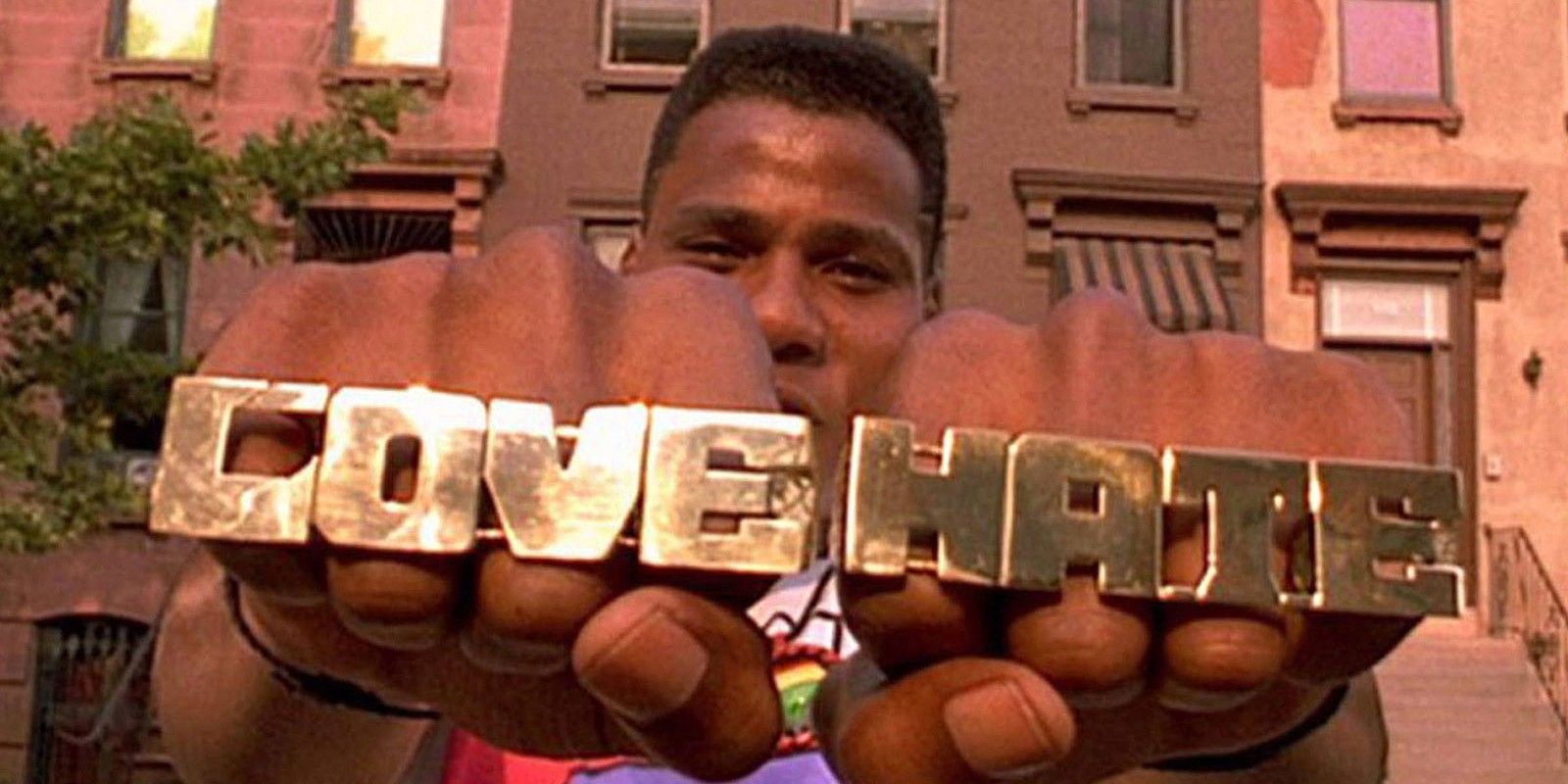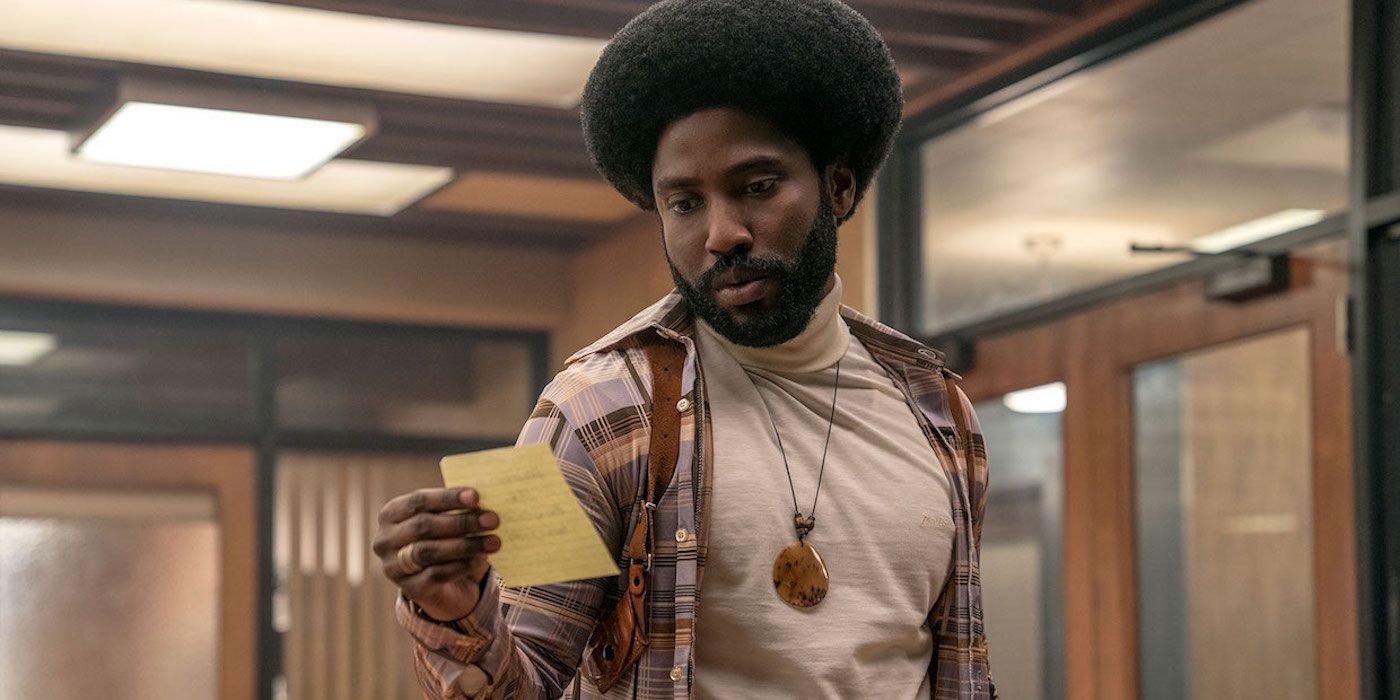In 2016, Spike Lee was presented with an honorary Academy Award for his contributions to the art of film. It had been 30 years since the premiere of She's Gotta Have It, his well-received debut. One would think that over the course of decades and dozens of films, Lee -- one of a handful of acclaimed writers and directors with international name recognition -- would've racked up his fair share of nominations and wins. However, at that point, Lee had only two, and none for Best Picture or Director.
Lee used his acceptance speech to call out Hollywood for its hypocrisy on matters of progressivism and race. Mostly, he chastised the audience for not giving enough opportunities to people of color, despite their performative liberal politics, but he also hinted at the way Black stories are otherized. Even Oscar's most ardent fans don't believe they're the true, sole measure of a film or a filmmaker's worth, but they can be revealing. In Spike Lee's case, they reveal just how underappreciated he is. Not only has Lee surely collected fewer accolades than he has deserved because of bias, but his films also receive less attention because he's been painted as a great Black filmmaker, and not a great American filmmaker, when both should be true.
Spike Lee's body of work is impressive by every metric by which it can be measured, so much so that it's hard to identify his equal. Lee has made 30 feature films in a 35-year career and is doing some of his best work at age 63, with seemingly plenty of gas left in the tank. About two-thirds of his films have earned positive reviews, and three were selected for the Library of Congress's National Film Registry for their cultural, historical and aesthetic significance. Those don't include BlacKkKlansman, the movie for which Lee finally won a competitive Oscar (for Best Adapted Screenplay), his biggest box office hit, Inside Man, or his masterpiece, Do the Right Thing.
Perhaps the most overlooked aspect of Spike Lee's filmography is its range, which makes the fact that he's sometimes pigeonholed as a Black filmmaker all the more unfortunate. To be clear, Black movies are important and they ought to be recognized as such. In fact, 20 distinguished artists recently established a Black Film Canon that features a whopping five of Lee's movies in its list of 50. But in addition to being the most prominent Black filmmaker, Lee is also adept at making movies in just about every genre. He's tried his hand at comedies, crime dramas, family dramas, romances, war movies, sports movies, music movies, biopics, documentaries and even an adaptation of Ancient Greek political satire.
Jungle Fever, 25th Hour, Chiraq may explore some common themes, but stylistically, they're very different movies, and yet hallmarks of his authorship are always present. His best work has its fingers on so many different American pulses, it defies easy classification. That's a testament to the craft of his screenwriting. Lee's scripts are poetic but colloquial, complex but accessible, and able to change moods on a dime in a way that feels true to life and totally earned.
They're also rich fodder for actors. Directors tend to develop reputations, either as the kind of big picture ship-steerer with strong visions or as actors' directors who coaxes out high watermark performances. Lee is both. Actors return to working with him, and his films feel appropriately lived in and authentic because of it. Yet, another instance of obvious systemic racism in the Academy is the sad footnote that a disproportionate number of actors who have received various acting nominations for Spike Lee films aren't Black. That's not to say Danny Aiello and Adam Driver aren't phenomenal themselves in two of Lee's most phenomenal efforts, but it does mean that many actors of color haven't gotten their due, and Lee's oeuvre warrants a second look for that alone.
To return to "vision," while Lee might not waste much time on CGI or work with tentpole budgets, he's still a skillful painter on the canvas of film. His use of color, texture, composition and even temperature aren't just good set dressing, they become necessary elements of plot and character. He's equally deliberate with sound and music. Spike Lee movies have iconic needle drops, like "Fight the Power," but they're also thoroughly atmospheric because of Lee's attention to detail, not to mention the savviness with which he chooses and maintains relationships with cinematographers and composers.
What makes Spike Lee an artist for the ages is the way he forces the audience to engage with his art. The difference between entertainment and art is that entertainment is consumed, while art challenges. Lee's movies lure you into thinking that they're entertainment with compelling narratives, relatable characters, and singular style. Then, when you least expect it, and in ways you couldn't have foreseen, they challenge you. From Do the Right Thing to Chiraq to BlacKkKlansman, they present the viewer with a world that's maybe, hopefully redeemable, but currently full of too many problems that are too tangled to easily solve. Then they make you do some of the work of figuring it all out. Audiences couldn't ask for much more from an artist.



